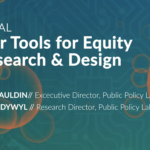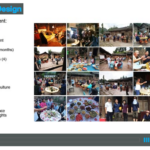
SANDJAR KOZUBEV
Georgia Institute of Technology
CARL DISALVO
Georgia Institute of Technology
[s2If is_user_logged_in()]DOWNLOAD PDF
[/s2If]
[s2If current_user_can(access_s2member_level1)]
[/s2If]
Public libraries in the U.S. and around the world are rapidly changing due expanding technological and social needs of their communities. The Covid-19 pandemic has intensified the debates about the future of public spaces and public services. In this paper, we report on a qualitative study of librarians in a U.S. urban public library system. The focus of the study was to understand how the concept of “the future of library” is constructed and contested both socially and materially. Using mixed methods, including participant observation, interviews, participatory design and action research, we developed insights about the socio-political dynamics of futures in a public infrastructure. We argue that futures can be shaped not only by socio-technical imaginaries, and representations, which tend to be abstract and distant, but also...








